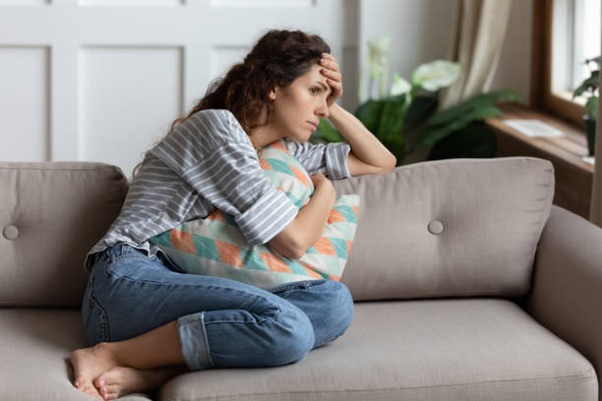Start 14-Day Trial Subscription
*No credit card required

Has The Pandemic Affected Your Sleep Quality?
Millions of people have complained about sleep problems caused by the coronavirus pandemic. Some have reported insomnia before the epidemic. Other people say the disease has impacted their sleeping habits. Some of them report a severe reduction in their quality of rest. The study found that participants reported a significant decrease in their sleep after the outbreak. Many also said that the crisis affected their quality of life.
COVID-19 is one of the most common causes of oversleeping. Oversleeping can make it difficult to wake up in the morning and even worsen mental health problems. Those affected by COVID often feel groggy, irritable, and unfocused upon awakening. Those who are affected by this virus often report having difficulty falling asleep.
People afflicted by the COVID-19 pandemic have been more prone to oversleeping. Oversleeping disrupts the circadian rhythm, which is critical for recovery and function. Those suffering from poor sleep are more likely to have more mental health problems than those who are good sleepers. The COVID-19 pandemic is an essential factor in reducing the quality of sleep for everyone.

Ways The Coronavirus Pandemic Is Affecting Peoples’ Lives
Increased Anxiety And Fear:
The Novel Coronavirus disease has taken the entire world by shock. Many people initially believed that the disease was only fatal to older adults or those with medical conditions that affect the lungs or the heart. But, recent research has confirmed that the virus can be extremely harmful and cause death to healthy people in middle age and even young adults. It is more contagious than common colds or flu. In addition, many people who are affected by the virus exhibit no signs of illness and can spread the virus without knowing about it. Suppose people are constantly worried about suffering from serious health problems or being killed. The stress levels increase and trigger panic in them. This can affect their sleep patterns and leads to low-quality sleep.
Damages To The Social Order:
During this epidemic, individuals must remain in the home quarantine for a varying amount of time. The situation is constantly changing day by day, and the length of home quarantine is growing. Everywhere from schools, colleges, and universities, unimportant businesses, stores, and other institutions are locked down. The public is afraid to venture away from their homes due to the risk of contracting the virus and fear of being subject to legal consequences like prison time or beatings by the police. Yet, there are people in the streets looking to purchase essential items that they could not buy even during this chaos. A lot of people are losing their job, sometimes temporarily as well as some permanently. Some are forced to work at their homes. A massive change in social order and economic situation has left people in a bind on their seats. In addition, many are now hoarding food and other items because of fear, which has led to the lack of supplies of goods and an increase in costs. When things don't go as they do every day, many people have trouble sleeping at night.
A Total Shift In The Routine:
The worldwide coronavirus outbreak has led to people staying inside and altering the usual routine. If you don't get up and go to bed precisely each day, it may create insomnia and reduce sleeping quality. If you're at home, you can have more access to caffeine, nicotine, and alcohol and nicotine, all of which have been proven to affect sleep quality and most people are staying up all night. You desperately have a need for deep sleep. Since you're not allowed to venture out in the open, you aren't exposed to natural light that is believed to increase awareness during the day. It is essential to maintain the circadian rhythm to sleep comfortably during the night.
Poor Maintenance Of Sleep Hygiene:
It's not just about maintaining your bedroom, mattress, sheets, and pillows in order and bathing and changing to clean clothes before going to sleep. There's more to it than the above. It's a mix of various routines, behaviours, practices, and rituals that impact sleep time and how well you sleep.
How Do Bad Sleeping Positions Affect Your Health?
Lack Of Sleep Can Cause Alzheimer's And Another problem
Lack of sleep has been linked to many medical problems, including Alzheimer's disease. In addition, recent reports have shown that COVID and long-haul air travel are also associated with disturbed sleep. Certain medications can also disrupt sleep, and caring for a loved one can affect the quality and quantity of sleep. For more information, visit our website. We provide expert advice and information on how to improve your sleeping habits.
Lack Of Sleep Can Affect Your Mood And Performance
If you have chronic insomnia, you must visit your doctor immediately. Not only can poor sleep affect your mood and performance, but it can also affect your immune system and heart health. Moreover, it can increase your risk of obesity and heart disease. When you're not sleeping properly, your body doesn't have time to repair itself. As a result, your body's metabolism will slow down, and you'll have trouble concentrating.
Lack Of Sleep Can Affect Your Body Weight
Insomnia can affect your health in more ways than one. If you have insomnia, your body can be affected by medical problems and it will also become hard to wake up early. If you're unable to get a good night's sleep, you might need medical treatment to get rid of sleep disorders. This may include a change in diet or a lifestyle change. If you are experiencing chronic insomnia, consult your doctor as soon as possible. If it's a severe condition, you may need testing to find a suitable treatment.
Finally
We're all in this pandemic as a team and must join forces to win the fight against this deadly disease. Every nation is trying to ensure the safety of its citizens by preventing the spread of the virus and taking care of patients already infected, and researching to find an effective cure.
Take care of your hygiene at night and sleep on a quality mattress for more rest and be healthy. If you're unable to rest because of anxiety, you should follow the tips in the article. If you do notice any indications of illness, be sure to keep your distance from others and conduct a test to determine whether you're suffering from the virus or not



